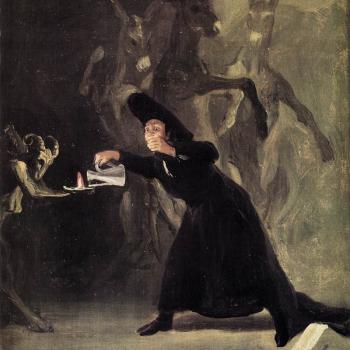I don’t mean to imply that Donald Trump is some kind of actual tyrant, not at all. He’s proven himself, however, whether on purpose or by sheer inborn habit, a convincing teller of tales. “The elites are bad. We have to drain the swamp. I’m the only man for the job. They need to go!” All while himself being a millionaire from New York who inherited a bunch of money; all while surrounding himself with elites, taking their advice, and pushing a fairly-typical GOP agenda. Such are the power of stories.
This the Dems do not seem to have quite understood. Hence all the fact checking, the obsession with Russia—all that stuff. The problem of American democracy is that your story must be convincing to more than just your own group. Sam Kriss captures this point with regard to the Mueller Report and its failure to find the president guilty of collusion:
It doesn’t matter. It isn’t over: it’ll never be over, not as long as people continue to believe. At the time of writing, the theory goes that the Attorney General’s summary of the Mueller investigation’s findings is actually a cover-up, a Trump nominee lying about the devastating report in a last desperate effort to hide the awful truth. When the full report is released, it’ll be something else. If the Rapture didn’t come on the predicted date, it’s because you were too sinful; if the comet failed to pick you up and carry you out into kaleidoscopic polysexual interstellar space, it’s because something polluted your positive vibes.
Conspiracy theories, the idea goes, swill around in the dregs of society, among the toothless, tobacco-stained, and deranged. The people who believe Trump is secretly trans are isolated cranks, while the people who believe Trump is secretly a Russian agent – or pretend to think that – are Hillary Clinton, the New York Times, the Washington Post, the Guardian, CNN, MSNBC, a substantial chunk of elected Democrats and not a few Republicans, along with doctors, lawyers, scientists, and celebrities. Early in 2017, the Washington Post published an op-ed castigating sections of the public for believing the insane reactionary nativist fantasy that Barack Obama is a secret Muslim, while not believing the insane reactionary nativist fantasy that Donald Trump is a Russian asset. Obviously, this writer didn’t think these ideas were comparable. It’s hard to imagine that the class character of the people who hold them didn’t have an effect. But ruling-class conspiracies aren’t really so unusual. For centuries, the European ruling classes were happily spreading and inventing paranoia against the continent’s Jews. Today, the Hungarian ruling classes do much the same thing. And the Prime Minister of Israel, not to be outdone, has tried to somehow exonerate Hitler for the Holocaust, and pin it all on the Palestinians. (“There’s no such country as Russia”)
Here too, among the Resistance we see the power of stories. But it is a limited power, one intense, but focused, rather than broad.
For what it’s worth: of course, I hope someone beats Trump is 2020 (assuming he runs). To make that happen, it seems to me that his opponents have something to learn about storytelling, storytelling that might reach the poor, communities of color, and other out groups. Bernie’s attack on the billionaires has been popular, across economic, racial, and other lines, in part because almost everyone likes hearing that they aren’t getting their fair share. Almost everyone can identify with disgust at the mega-rich. One could say some very similar things about AOC.
People, however, do not identify with the Trump hunt, at least not the majority of Americans. If the Dems continue to push on the Mueller Report, I am skeptical that we can expect most people to get very excited. They run the risk of looking silly, even obsessed, pushing more people toward Trump. Constantly calling out his mistakes, idiocies, and the like does much the same. Something has to change—that “something” could be gleaned from Trump’s haphazard, yet effective, storytelling.
That’s my story. And I’m sticking to it.













